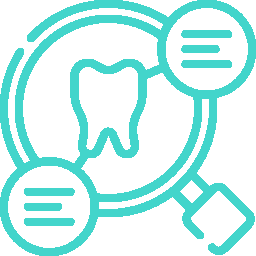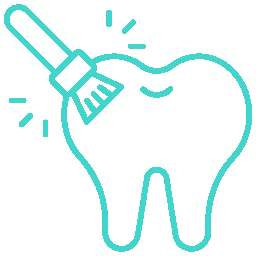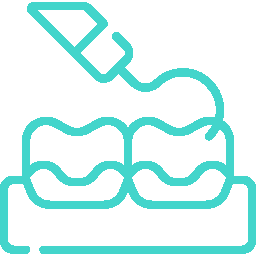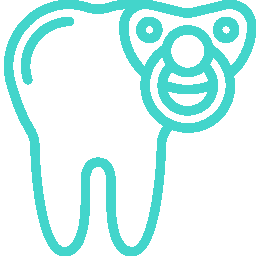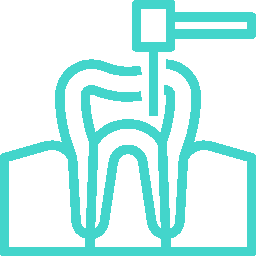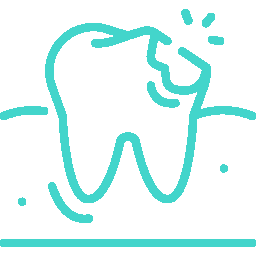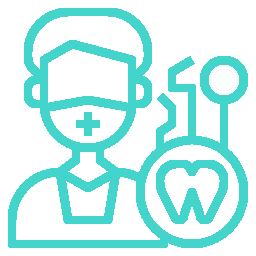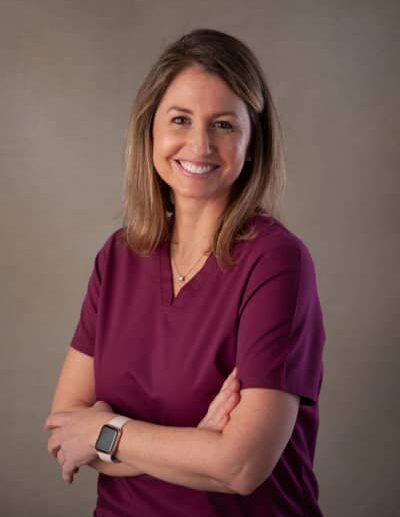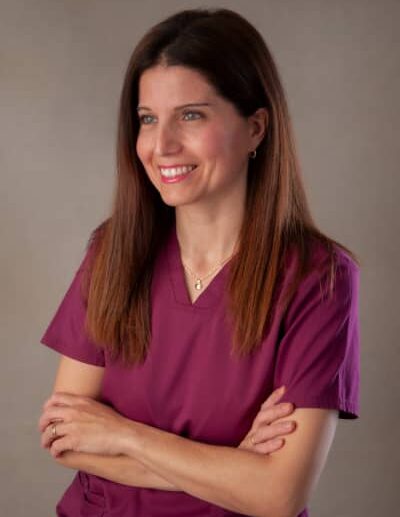Pediatric Dentistry in Mallorca
Oral care for children and young people
Maintaining our children’s oral health and cultivating good hygiene habits is essential for the development of healthy, strong and functional teeth that will remain in good condition for a long time. For this reason, our philosophy is prevention, and we recommend that children make their first visit to the dentist at the age of two at the latest.
On the other hand, we also know that the first impression children have is very important so that they do not acquire fear and get used to going to the dentist with complete peace of mind. For this reason, at our centre we take care of every detail to provide completely personalised attention, taking into account the particularities of their age.
Do you need a paediatric dentist?
Request an appointment with free check-up and diagnosis
Whether you want to start treatment or request information, you are in the right place. Leave us your details and we will contact you within three hours
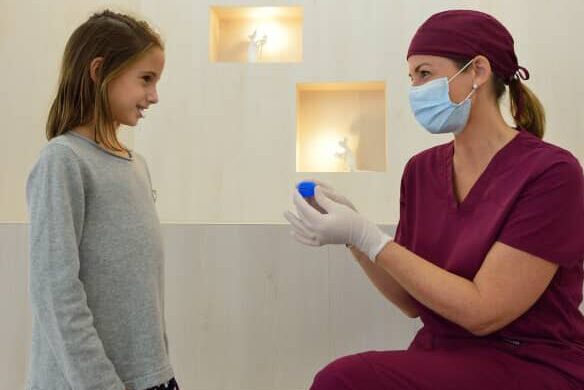
What is paediatric dentistry?
Paediatric dentistry deals with the care and maintenance of children’s oral health in a comprehensive manner. This odontological speciality has the objective of preventing the typical infantile and juvenile oral pathologies and to teach the child from a very early age the importance of having good dental hygiene habits. At Udemax Clinics we want children to reach adulthood with a healthy, aesthetic and functional mouth and, above all, we want them to have acquired routines and habits for their proper care.
Why is oral care from infancy so important?
Dental and bone growth occurs in infancy, so prevention of potential problems is essential for optimal development. The presence of caries, gum disease or the absence of a tooth can cause alterations in the growth of the jaw, in the development of the physiognomy of the face and even a poor eruption of the permanent teeth.
On the one hand, caries is the most common chronic oral disease in childhood. The structure of primary teeth is weaker, which is why caries in children is more aggressive than in adults and if left untreated can even affect the permanent teeth, both in their eruption and in their colour and shape. For this reason, we work on its prevention and rapid treatment if this pathology is detected.
On the other hand, children’s gums are not exempt from the periodontal diseases that we generally associate with adults, such as gingivitis and periodontitis. Children, unfortunately, can also suffer from these problems. And in these cases treatment is vital as the integrity of the dental structure depends to a large extent on the health of the gums.
What types of treatment are performed in paediatric dentistry?
Benefits of Paediatric Dentistry
The monitoring of oral health in children and the proposal of possible preventive treatments by the paediatric dentist aims to:
- Prevent, treat and control the advance of caries.
- Prevent and treat periodontal diseases.
- Provides a solution to dental trauma and fractures.
- Improve dental aesthetics and functionality.
- Educates in good oral hygiene habits.
- Establishes a good basis for maintaining oral health.
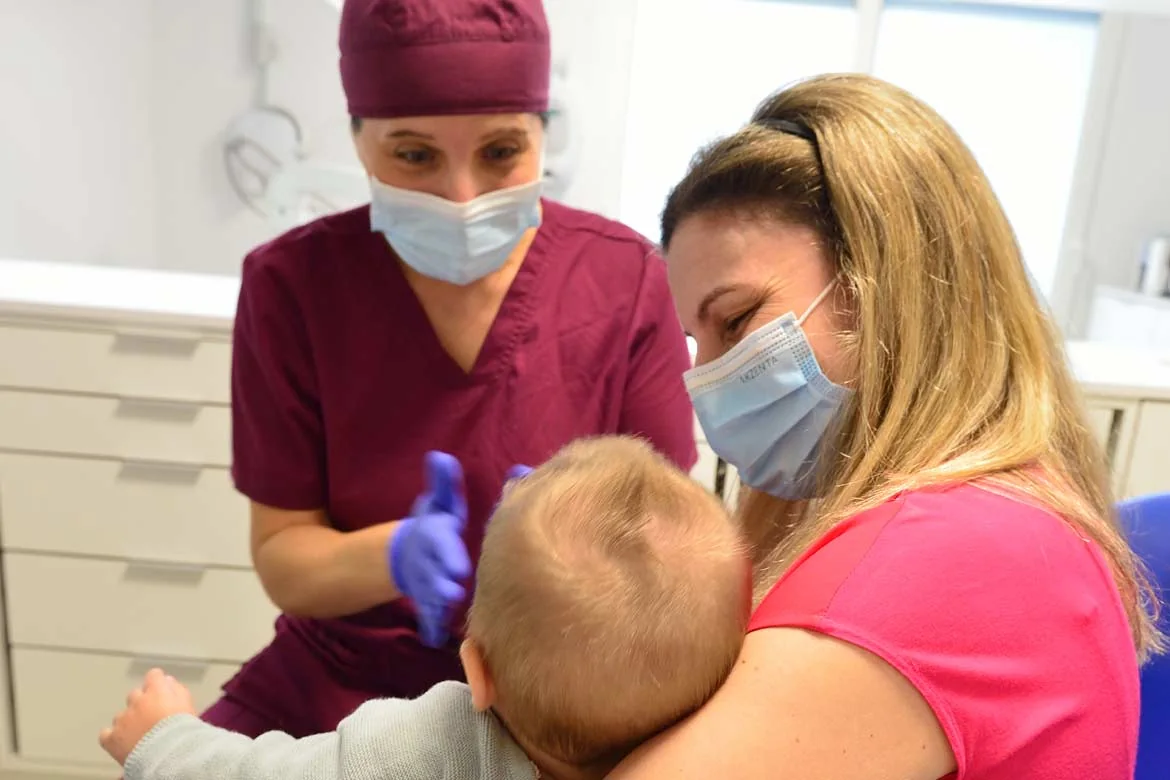
Frequently asked questions about paediatric dentistry
At approximately 6 months of age is when the eruption of the first tooth begins, that is to say, it is when the dentition of the little one begins, the perfect time to start monitoring their oral health. This type of early check-ups are usually essential to advise parents in areas such as nutrition and oral habits of the infant, dental development and, if necessary, preventive treatments such as fluoride application, pit and fissure sealings and others to protect their teeth and gums.
Yes, the primary dentition, or baby teeth as we know them, can suffer from tooth decay in the same way that adult teeth do. However, it is necessary to be even more careful if possible, due to the characteristics of baby teeth. Once caries starts, it progresses much faster, affecting the nerve tissue of the tooth more quickly than in the case of permanent teeth. This can affect the development of the latter, which is why it is essential to prevent and treat caries.
One of the essential ways to prevent oral health problems in children such as caries and periodontal disease is dental hygiene at home. It is so important that even before the first primary teeth erupt, parents can start using special gauze or thimbles to remove debris from the gums, whose wellbeing is just as important for oral health. Once the first teeth have erupted, and preferably on the recommendation of the paediatric dentist, a toothbrush designed for babies can be introduced.
More important than whether to use an electric or manual toothbrush is the habit of brushing after every meal. Either is a good option as long as it motivates the child to brush their teeth and take care of their oral health from a very young age.
On the other hand, the type of toothpaste used will vary depending on the age of the child. Up to the age of 6 or 7, when children begin to control swallowing, a toothpaste containing a maximum of 500ppm flouride is recommended. After that, there would be no problem if this concentration were higher.
It will always depend on the needs of each child. This frequency should be determined by the specialist according to the infant’s or young person’s oral health. During treatment, it is common for the frequency to increase, however, it is important to continue to visit the dentist even if the child does not seem to suffer from any oral disease (such as caries or periodontitis), as the paediatric dentist will also assess whether the dental and maxillary development is correct. For this reason, it is advisable to have at least one check-up every year in order to prevent the appearance and/or evolution of any problems.
Baby teeth have many functions in a child’s development, the most important of which are related to chewing and speech. The age at which they appear can vary from case to case, however, generally the eruption of milk teeth can begin at around 6 months of age. By the time a child is about 3 years old, he or she should have all of the primary teeth, totalling 20 in total.
At 6 years of age, these baby teeth will begin to move and fall out, making room for the eruption of the permanent teeth. As we have already mentioned, the health of the primary teeth is fundamental for correct dental development. They also have a guiding function, so their condition will directly affect the wellbeing of the permanent teeth.
Discomfort when teeth erupt is common. To soothe the pain, irritation and redness of the gums in children, it is important to consult your paediatric dentist to choose from a range of ointments and gels on the market, as well as the use of teethers.
It is important to avoid distracting the infant with soothers dipped in honey or sugar. This is detrimental to primary teeth. The destruction that occurs can be rapid and very aggressive. The same happens when sweetened foods, including fruit juices, are added to the bottle and remain in the child’s mouth for hours, which can cause what is known as baby bottle tooth decay syndrome.
Halitosis in children, as we know bad breath, can be due to several reasons. It can be caused by caries or periodontitis, but also for other reasons such as vegetations, sinusitis or gastric problems. It is therefore essential to see your regular paediatrician to diagnose the source of the problem and refer to other specialists. If it is an oral factor, the paediatric dentist will determine the best treatment to solve the problem that is really a consequence of one of the oral diseases we have mentioned.
Yes. Although it is a subject that has always generated controversy, as the Spanish Association of Paediatrics (AEP) explains in its study on Pacifier use and breastfeeding, the dummy “calms the baby’s crying, helps to fall asleep and reduces stress and pain, situations that cause concern and anxiety in parents”.
However, what is worrying is its prolonged use (beyond the age of one year), as this habit, together with the sucking of the thumb or other finger, can cause deformities in the palate, teeth and even the face. For this reason, it is essential to see a paediatric dentist who will know how to assess when it is the best time to remove it depending on the child’s maxillary development.
On the other hand, it should not be forgotten that other habits such as mouth breathing can also cause alterations in the growth of the maxillary bones. In these cases, it is necessary to see a specialist in otorhinolaryngology to diagnose and treat the cause of this type of breathing.
Other habits such as nail biting, biting objects, the presence of tooth grinding (conscious or unconscious) known as bruxism, as well as other factors can potentially cause alterations or pathologies in the development of the temporomandibular joint (TMJ) and injuries to the teeth themselves.
One of the reasons to go to a centre specialising in children and young people’s oral health is because of the guarantees they offer when attending to patients whose needs are completely different to those of adults. At a clinic specialising in paediatric dentistry such as ours, you will not only find a team of specialists in children’s oral health, but you will also see how techniques are applied to help them become familiar with dental consultations and treatments.
Starting visits to the dentist when your child is young, especially those that do not include treatment, will help them to become familiar with this environment. On the other hand, there are techniques such as conscious sedation that allow all types of oral procedures to be carried out on young patients who have a serious fear of the dentist and whose odontophobia does not allow them to calm down and proceed with treatment.




